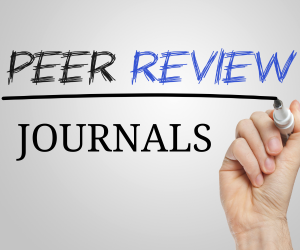THE EFFECT OF HUMAN IMMUNODEFICIENCY VIRUS (HIV) AND ANTIRETROVIRAL THERAPY ON THE RISK OF PRE-ECLAMPSIA: A TEN YEARS SYSTEMATIC REVIEW
DOI:
https://doi.org/10.61841/6a01rq38Keywords:
HIV, antiretroviral therapy, HAART, pre-eclampsia, pregnant womanAbstract
Background: Human immunodeficiency virus (HIV) infection affects 25% of the US population, with women being the most likely to receive a diagnosis during their reproductive years. Pregnant HIV-infected women are recommended to start antiretroviral therapy (ART) during pregnancy, regardless of CD4+ cell count. Research suggests that HIV infection may reduce the risk of pre-eclampsia (PE). Despite PE being the cause of 42,000 maternal fatalities annually, pregnant women living with HIV are less likely to develop pregnancy hypertensive problems.
The aim: This study aims to determine the effect of HIV and antiretroviral therapy on the risk of PE.
Methods: This work demonstrated compliance with all standards by means of a comparison with the Preferred Reporting Items for Systematic Review and Meta-Analysis (PRISMA) 2020 guidelines. Consequently, experts were able to guarantee that the study was as current as feasible. Publications released in the years 2014–2024 were considered for this search strategy. To do this, a variety of internet reference sites were used, including ScienceDirect and PubMed. Review articles, previously published works, and partially completed works were all selected not to be considered.
Results: When we searched the PubMed database, we found 33 papers, but when we searched ScienceDirect, we found 92 publications. Title screening produced a total of 14 articles for PubMed and 23 articles for ScienceDirect in the search results. Eight papers from PubMed and ten from ScienceDirect made up the total of the papers we compiled. Four reviews, four duplicates, and one with insufficient results were all excluded. Nine studies that satisfied the requirements were finally included.
Conclusion: This systematic review found that maternal HIV infection and not using antiretroviral therapy reduced the risk of PE. However, further investigations with more well-designed studies with larger sample sizes are still needed.
References
Deeks SG, Overbaugh J, Phillips A, Buchbinder S. HIV infection. Nat Rev Dis Primers. 2015 Oct 1;1.
Hemelaar J, Elangovan R, Yun J, Dickson-Tetteh L, Fleminger I, Kirtley S, et al. Global and regional molecular epidemiology of HIV-1, 1990–2015: a systematic review, global survey, and trend analysis. Lancet Infect Dis. 2019 Feb 1;19(2):143–55.
Arab K, Spence AR, Czuzoj-Shulman N, Abenhaim HA. Pregnancy outcomes in HIV-positive women: a retrospective cohort study. Arch Gynecol Obstet. 2017 Mar 1;295(3):599–606.
Bailey H, Zash R, Rasi V, Thorne C. HIV treatment in pregnancy. Vol. 5, The Lancet HIV. Elsevier Ltd; 2018. p. e457–67.
Graybill LA, Kasaro M, Freeborn K, Walker JS, Poole C, Powers KA, et al. Incident HIV among pregnant and breast-feeding women in sub-Saharan Africa: A systematic review and meta-analysis. AIDS. 2020 Apr 1;34(5):761–76.
Worku WZ, Azale T, Ayele TA, Mekonnen DK. Effects of HIV Infection on Pregnancy Outcomes Among Women Attending Antenatal Care in Referral Hospitals of the Amhara Regional State, Ethiopia: A Prospective Cohort Study. Int J Womens Health. 2022;14:1405–23.
Stringer EM, Kendall MA, Lockman S, Campbell TB, Nielsen-Saines K, Sawe F, et al. Pregnancy outcomes among HIV-infected women who conceived on antiretroviral therapy. PLoS One. 2018 Jul 1;13(7).
Nourollahpour Shiadeh M, Riahi SM, Khani S, Alizadeh S, Hosseinzadeh R, Hasanpour AH, et al. Human Immunodeficiency Virus and risk of pre-eclampsia and eclampsia in pregnant women: A meta-analysis on cohort studies. Vol. 17, Pregnancy Hypertension. Elsevier B.V.; 2019. p. 269–75.
Chappell LC, Cluver CA, Kingdom J, Tong S. Pre-eclampsia. Vol. 398, The Lancet. Elsevier B.V.; 2021. p. 341–54.
Espinoza J, Vidaeff A, Pettker CM, Simhan H. ACOG PRACTICE BULLETIN Clinical Management Guidelines for Obstetrician-Gynecologists [Internet]. 2020. Available from:
http://journals.lww.com/greenjournal
Hypertension in pregnancy: diagnosis and management NICE guideline [Internet]. 2019. Available from: www.nice.org.uk/guidance/ng133
Hall D, Gebhardt S, Theron G, Grové D. Pre-eclampsia and gestational hypertension are less common in HIV infected women. Pregnancy Hypertens. 2014 Jan;4(1):91–6.
Imogie SA, Sebitloane HM. Influence of HIV and its treatment on hypertensive disorders of pregnancy in women from a low- to middle-income country. International Journal of Gynecology and Obstetrics. 2023 Aug 1;162(2):479–84.
Lockman S, Brummel SS, Ziemba L, Stranix-Chibanda L, Mccarthy K, Coletti A, et al. Articles Efficacy and safety of dolutegravir with emtricitabine and tenofovir alafenamide fumarate or tenofovir disoproxil fumarate, and efavirenz, emtricitabine, and tenofovir disoproxil fumarate HIV antiretroviral therapy regimens started in pregnancy (IMPAACT 2010/VESTED): a multicentre, open-label, randomised, controlled, phase 3 trial
[Internet]. Vol. 397, www.thelancet.com. 2021. Available from: www.thelancet.com
Machado ES, Krauss MR, Megazzini K, Coutinho CM, Kreitchmann R, Melo VH, et al. Hypertension, preeclampsia and eclampsia among HIV-infected pregnant women from Latin America and Caribbean countries. Journal of Infection. 2014;68(6):572–80.
Mukosha M, Vwalika B, Lubeya MK, Kumwenda A, Kaonga P, Jacobs C, et al. Determinants and neonatal outcomes of preeclampsia among women living with and without HIV at a tertiary hospital in Zambia: a review of medical records. Pan African Medical Journal. 2022;43.
Prophet J, Kelly K, Domingo J, Ayeni H, Mekouguem XPD, Dockery B, et al. Severe pre-eclampsia among pregnant women with sickle cell disease and HIV. Pregnancy Hypertens. 2018 Jan 1;11:87–91.
Sansone M, Sarno L, Saccone G, Berghella V, Maruotti GM, Migliucci A, et al. Risk of preeclampsia in human immunodeficiency virus-infected pregnant women. Obstetrics and Gynecology. 2016 Jun 1;127(6):1027–32.
Sikhosana ML, Suchard M, Kuonza L, Cutland C, Slogrove A, Otwombe K, et al. Association between preeclampsia and HIV: a case-control study in urban South Africa. AJOG Global Reports. 2022 Aug 1;2(3).
Stoner MCD, Vwalika B, Smid MC, George S, Chi BH, Stringer EM, et al. A retrospective study of HIV, antiretroviral therapy, and pregnancy-associated hypertension among women in Lusaka, Zambia. International Journal of Gynecology and Obstetrics. 2016 Sep 1;134(3):299–303.
Phoswa WN, Naicker T, Ramsuran V, Moodley J. Pre-eclampsia: the role of highly active antiretroviral therapy and immune markers. Vol. 68, Inflammation Research. Birkhauser Verlag AG; 2019. p. 47–57.
Calvert C, Ronsmans C. HIV and the Risk of Direct Obstetric Complications: A Systematic Review and MetaAnalysis. Vol. 8, PLoS ONE. 2013.
Kalumba VMS, Moodley J, Naidoo TD. Is the prevalence of pre-eclampsia affected by HIV/AIDS? A retrospective case-control study. Cardiovasc J Afr. 2013 Mar;24(2):24–7.
Naidoo N, Moodley J, Khaliq OP, Naicker T. Neuropilin-1 in the pathogenesis of preeclampsia, HIV-1, and SARS-CoV-2 infection: A review. Vol. 319, Virus Research. Elsevier B.V.; 2022.
Downloads
Published
Issue
Section
License

This work is licensed under a Creative Commons Attribution 4.0 International License.
Licensing
Ninety Nine Publication publishes articles under the Creative Commons Attribution 4.0 International License (CC BY 4.0). This licensing allows for any use of the work, provided the original author(s) and source are credited, thereby facilitating the free exchange and use of research for the advancement of knowledge.
Detailed Licensing Terms
Attribution (BY): Users must give appropriate credit, provide a link to the license, and indicate if changes were made. Users may do so in any reasonable manner, but not in any way that suggests the licensor endorses them or their use.
No Additional Restrictions: Users may not apply legal terms or technological measures that legally restrict others from doing anything the license permits.





